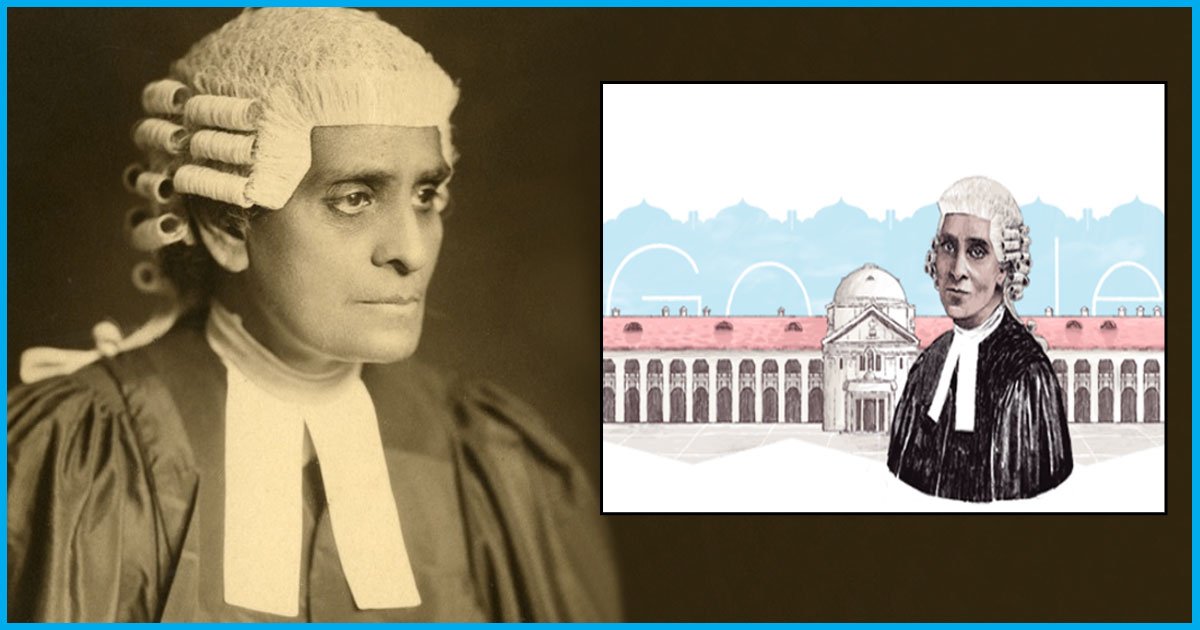
Google Doodle Pays Tribute To Cornelia Sorabji, India’s First Female Advocate
15 Nov 2017 9:39 AM GMT
Today’s Google Doodle pays tribute to Ms. Cornelia Sorabji, India’s first female advocate marking her 151st birth anniversary. The doodle has a picture of her in an Advocate’s gown and white band – the Allahabad High Court building is shown in the background.
First Indian woman to become a lawyer
Our country has produced hundreds of great women lawyers till now. They have climbed the ladder of success and earned . Some of the greatest names are those of Alamjeet Kaur Chauhan, Pramila Nesargi, Indira Jaising and our present External Affairs Minister Sushma Swaraj.
But it was Cornelia Sorabji, who was the torchbearer of this trend as she was the first Indian woman to become a successful lawyer. Imagine how difficult it would have been for her to achieve such a feat during the early half of the 20th Century, when patriarchy was the mainstream of the country.
She has many more ‘firsts’ to her credit
Born in 1866 to Reverend Sorabji Karsedji, a Parsi, and his wife, Francina Ford, she was homeschooled by her father at several of their mission schools.
Cornelia Sorabji had a lot of firsts to her name: the first woman graduate from Bombay University; the first woman to graduate in law from the University of Oxford; the first to practice as a barrister in both India and Britain, and the first woman civil servant in India.
Education was a major priority in Cornelia’s family. Her youngest sister Alice also became the first woman in India with a B.Sc. degree. Cornelia’s mother had a lasting impact on her – it is because of her feminist views and ideologies that Cornelia was inspired to work for women empowerment later in life.
After leaving school, Cornelia joined Bombay University and was the only girl among 300 boys in Deccan College, Pune. Despite several resistance from the boys who prevented her to attend lectures, Cornelia stood against all odds and successfully completed her BA in 1886.
Even after winning a scholarship to study in England, she was initially denied entry because she was a woman. However, a group of prominent personalities that included Florence Nightingale and Sir William Wedderburn came together to help get her scholarship and she finally went to England.
Not awarded a degree as she was a woman
Her struggles did not end even in England. Initially denied the permission to pursue law, it was only through the efforts of eminent academic and philosopher Benjamin Jowett who got a special law course devised for her.
She joined the Somerville College in 1889 and cleared the Bachelor of Civil Law in 1892, but was not awarded a degree as she was a woman—she only got the official degree after 1920, when they agreed to give degrees to women.
She decided to return to India as a lawyer in 1893. She got involved in the social and advisory works after returning to India. Even after getting the law degree, she could not be recognized as a barrister until the law was changed in 1924.
Later in 1904, she was assigned as a Lady Assistant at the Court of Wards, Bengal. She had helped a lot for women and orphans in fighting for their legal rights. Her significant contribution lies in the work she did for the ‘purdanashin’ (veiled) women . These women according to Hindu law,were not allowed to communicate with men other than their husbands and since all the lawyers were men, there was no one to work for their cause.
She often gave free services to women and children who required her attention.
Finally, in the year 1924, law became a legal profession in India for woman. It was then that she started practicing in Calcutta. She retired in 1929 from the High Court and went to London.
She passed away in 1954. Cornelia Sorabji’s life and her struggles are burning examples of how the glass ceiling of female practitioners of law was thwarted in India and abroad.
 All section
All section













